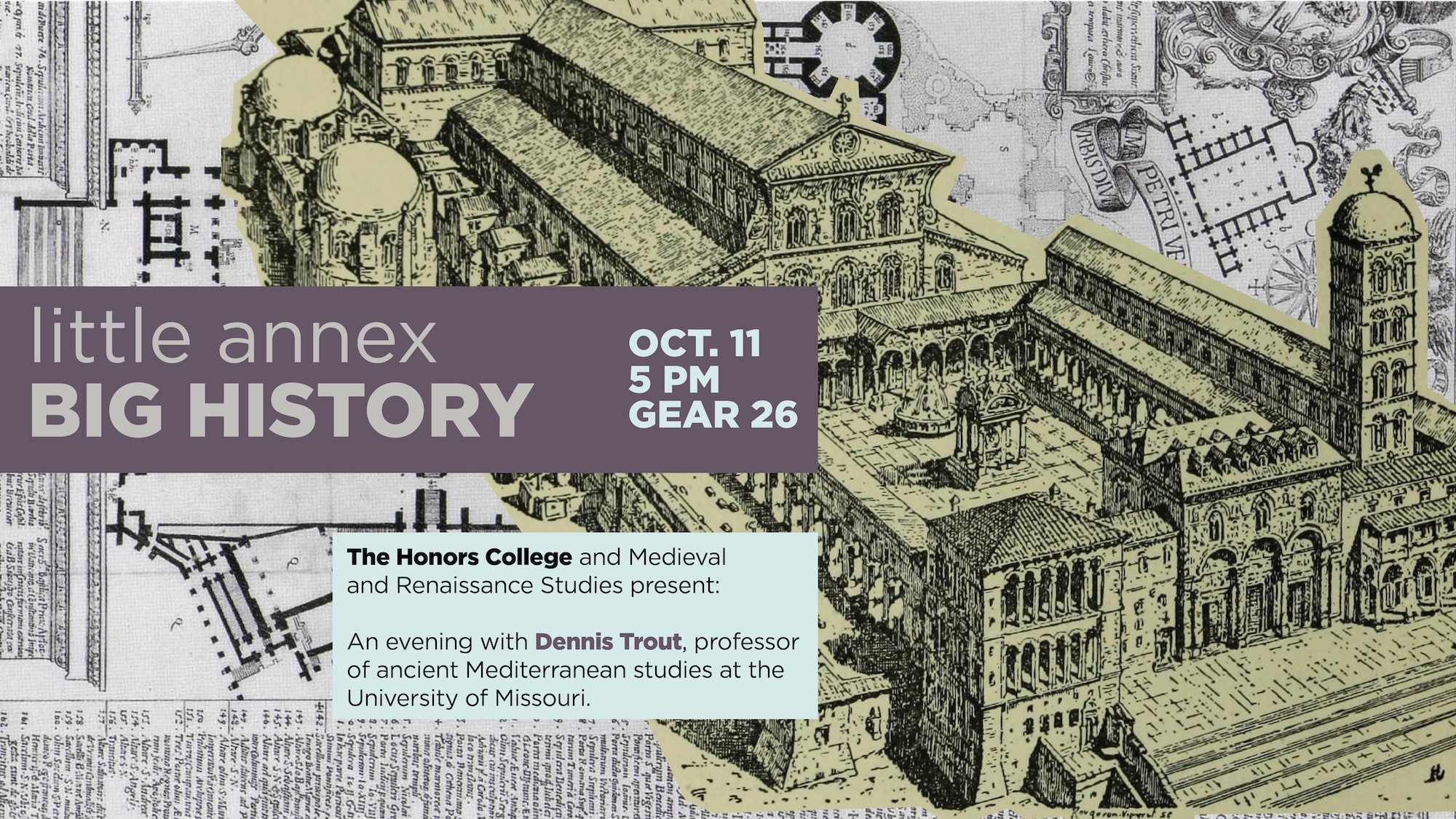Dennis Trout to Lecture on Vatican Shrine
Dennis Trout: Little Annex, Big History
A Lecture Presented by The Honors College and Medieval and Renaissance Studies Department
Wednesday, October 11, 2023, 5:00 p.m.
Gearhart Hall Auditorium (GEAR 26)
What began as a big project – “an endless project” – researching epigraphic poetry inscribed on churches and tombs, led Dennis Trout,
professor of ancient Mediterranean studies at the University of Missouri, to a little
annex building attached to the original church of St. Peter’s Basilica in Vatican
City. In a lecture, hosted by the Honors College and the Medieval and Renaissance Studies
Program, Trout will open the door to the small memorial shrine and share what we can
learn from it with respect to contemporary values and attitudes about the use of relics
and the role the cult of the saints played in the lives of people between 500 CE and
1500 CE.
Trout received his Ph.D. in ancient history from Duke University and was an associate
professor of classics at Tufts University before arriving at the University of Missouri
in 2000. His research focuses on Late Antiquity and engages material and visual evidence
as well as literary sources. He has been the president of the North American Patristics
Society and is the recipient of fellowships from the National Endowment for the Humanities,
the Loeb Classical Library Foundation, and the National Humanities Center. He is the
author of Paulinus of Nola: Life, Letters, and Poems (University of California Press, 1999) and Damasus of Rome: The Epigraphic Poetry(Oxford University Press, 2015). He is currently working on a book titled Monumental Verse: The Metrical Inscriptions of Late Ancient Rome.
“The interesting thing about inscribed poetry, unlike poetry you read out of a book,
is that you’re reading it on walls or in tombs,” Trout shared. “It’s very much part
of an architectural complex as well as a literary world.” Trout is enamored with Late
Antiquity because it is a “moment of tremendous change” and engages with a rich classical
legacy of buildings, texts and ideas. “If you’re interested in culture, then it is
a laboratory for thinking about what we do as humans, with buildings, words and ideas
as they come under pressure,” Trout said. “That’s extremely relevant for our particular
moment.” Trout’s lecture is unique in that it weaves together multiple disciplines,
which he believes is key to understanding the past.
“Whether you think of yourself as an historian, anthropologist, literary critic, art
historian or architectural historian, none of those categories is on its own sufficient
to understand the past,” Trout argues. “The human experience is so rich and varied
that it is unlikely that any single discipline or approach is going to equip you for
everything you need to see and say about the past and present.”
